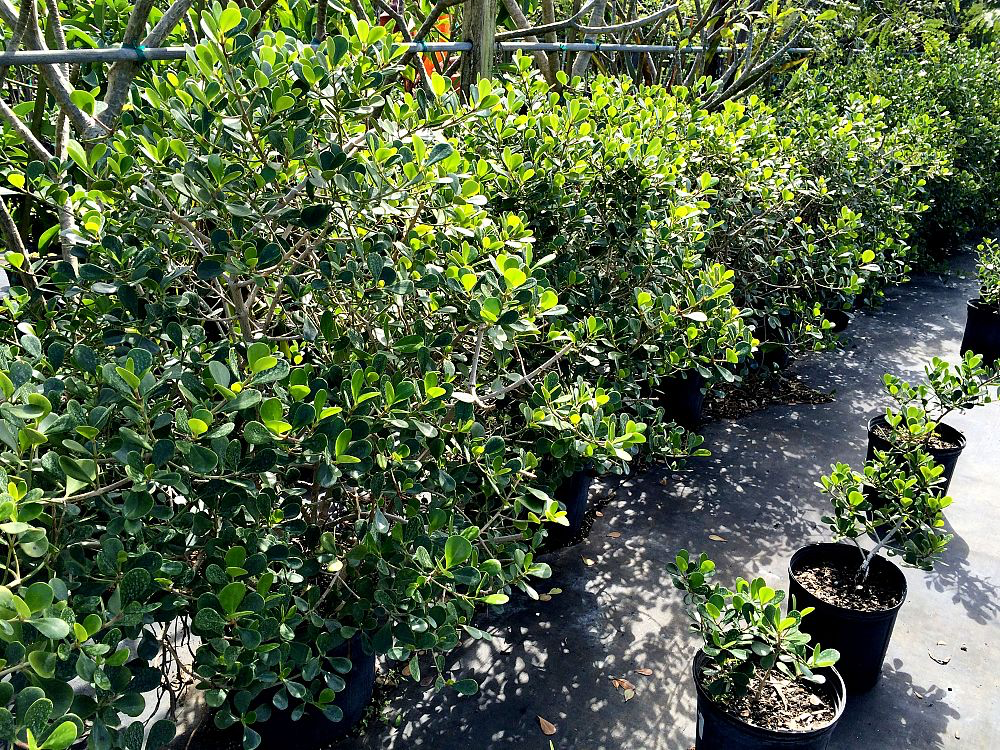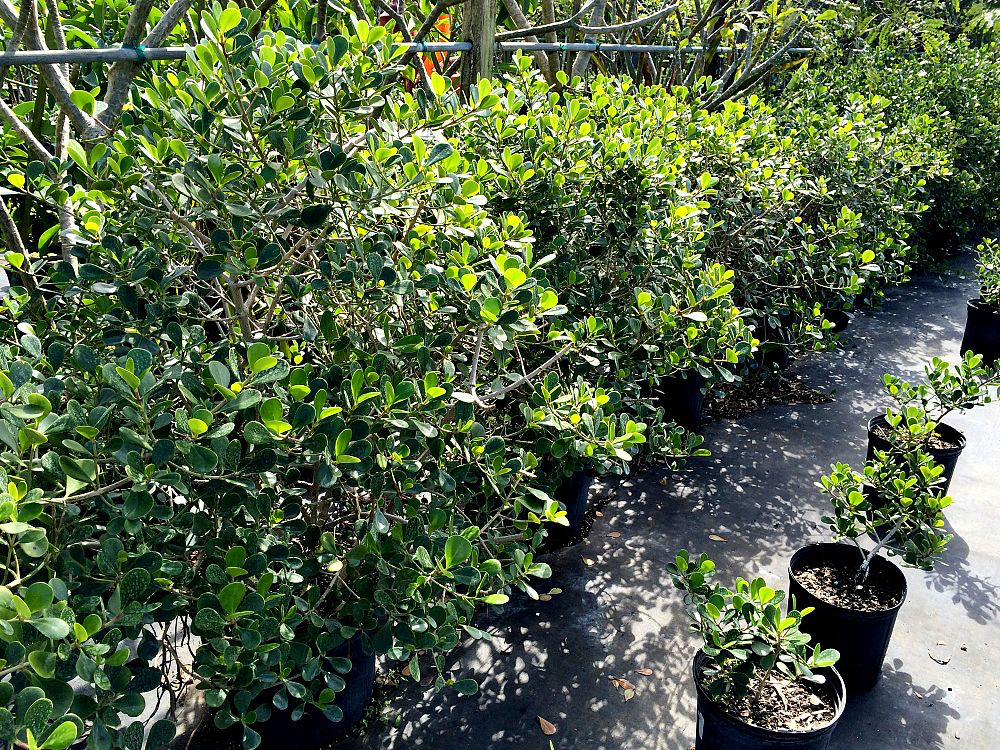Dwarf Pitch Apple
Binomial name
Clusia rosea
Common names
Autograph Tree, Pitch Apple, Bermuda Buttercup
Description
Clusia rosea is a robust, evergreen shrub or small tree that stands out with its thick, leathery, glossy leaves and attractive flowers. The plant gets its nickname, "Autograph Tree," because you can carve into its leaves, and the marks will remain visible for a long time. It’s known for its tolerance to salt, wind, and drought, making it a popular choice for coastal landscapes and gardens. When it blooms, it produces showy white or pink flowers, which eventually turn into green fruit that ripens to a yellow-orange color. This hardy, low-maintenance tree adds a tropical feel to gardens and can even be used as a hedge or screen due to its dense growth.
Light requirements
Clusia rosea thrives in full sun to partial shade. It grows best with plenty of direct sunlight, which encourages healthy growth and vibrant foliage. While it can tolerate some shade, it may not bloom as profusely or grow as vigorously in lower light conditions. If planting in a shaded area, ensure that it still receives at least a few hours of sunlight daily.
Soil preferences, including pH and drainage
This plant prefers well-draining, slightly acidic to neutral soil (pH 6.0–7.0). It adapts well to a variety of soil types, including sandy and rocky soils, making it perfect for coastal or dry garden settings. However, good drainage is essential to prevent root rot, so ensure the soil is light and porous. Clusia rosea is quite tolerant of poor soils, as long as they drain well.
Water needs
Clusia rosea is relatively drought-tolerant once established, but it will perform better with regular watering. Water the plant deeply when the soil is dry, but avoid letting it sit in waterlogged conditions. During the growing season, keep the soil slightly moist, but in the cooler months, you can reduce watering. Overwatering can lead to root rot, so it’s best to let the soil dry out between waterings.
| Size | 7 Gallon |








